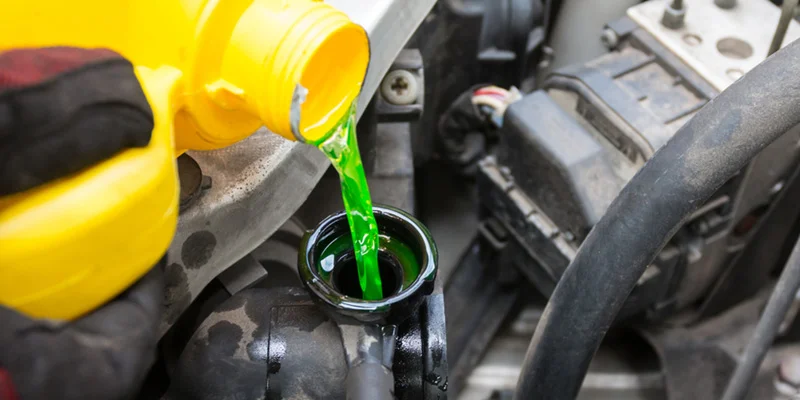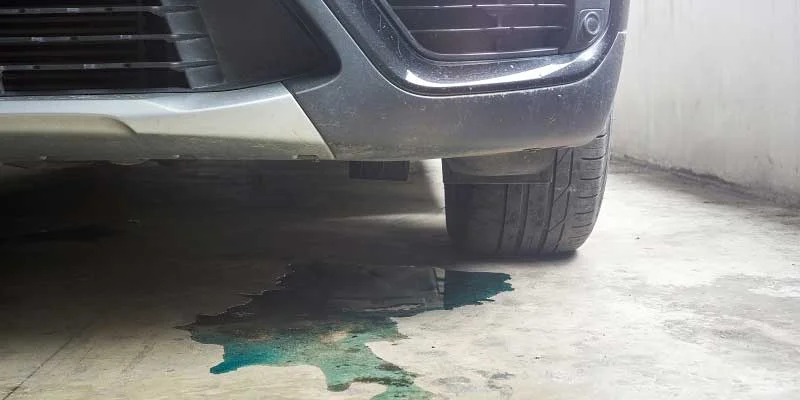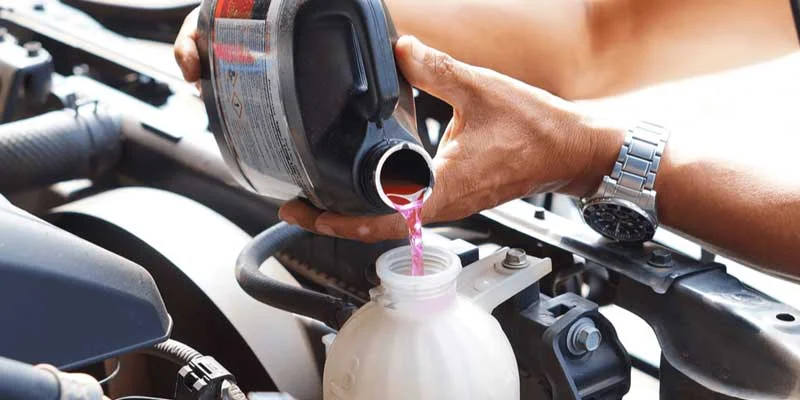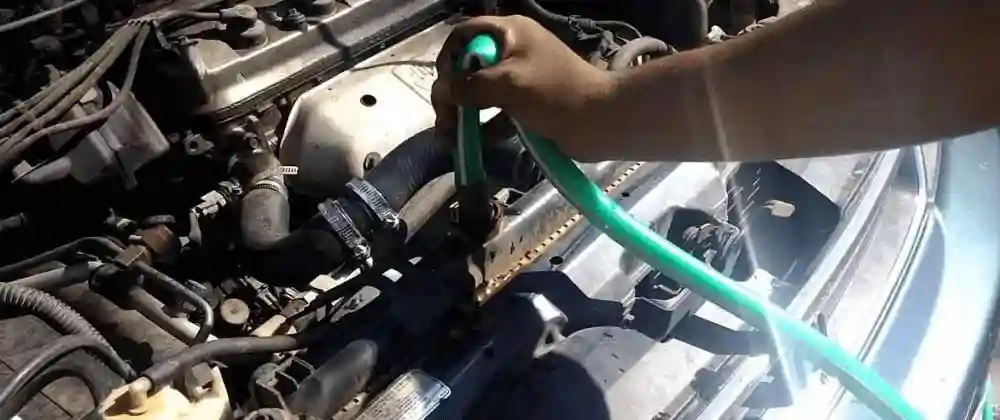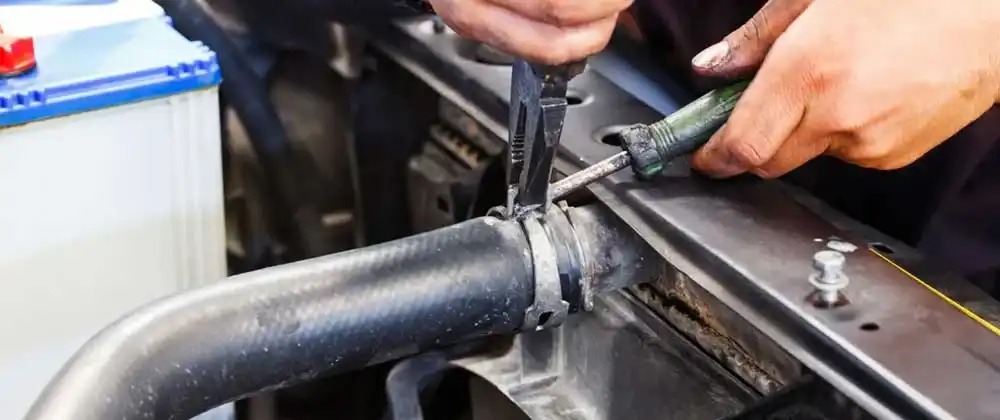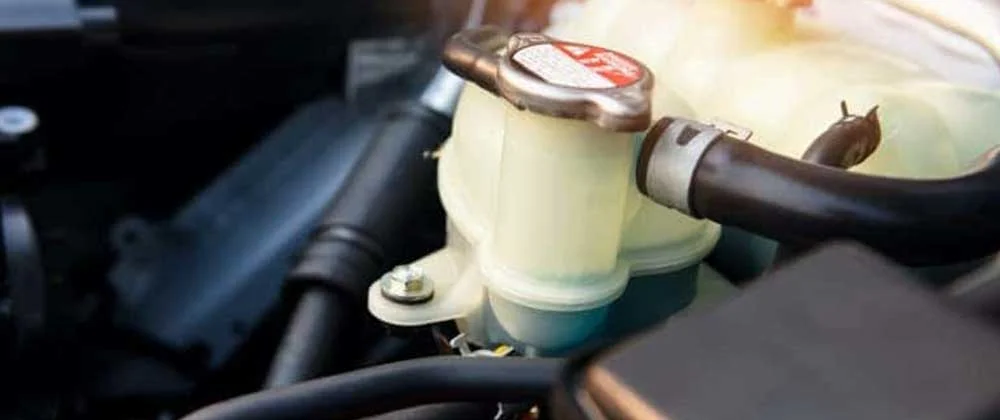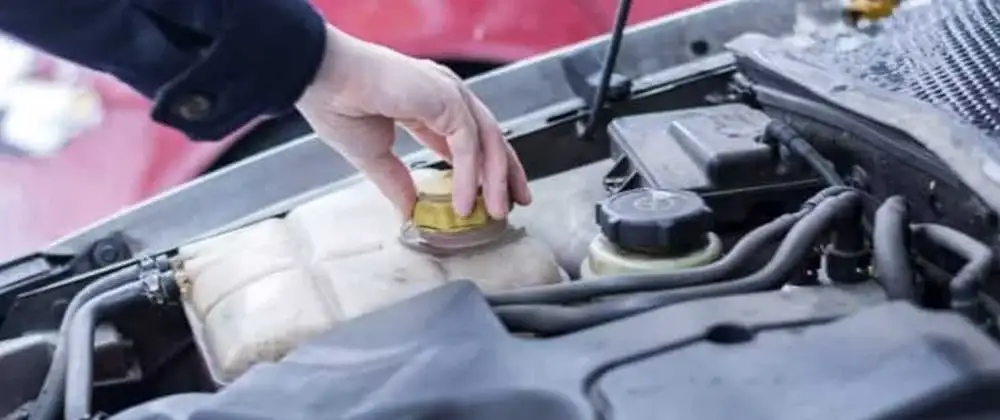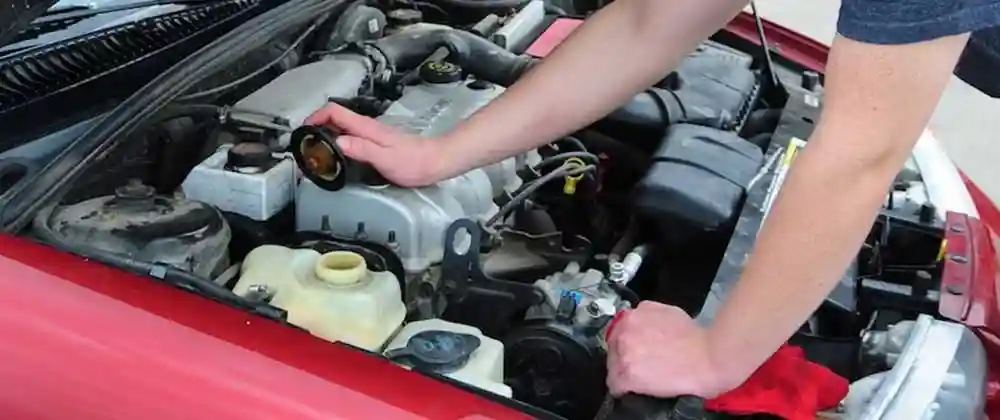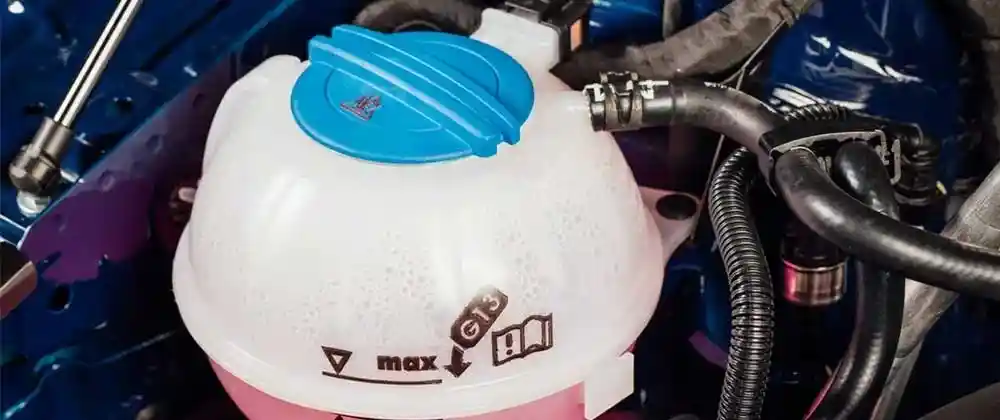The engine is the central part of any car that impacts the efficiency, drivability, and air conditioning system in it. Hence it is essential to keep the well-being of your engine to maintain your car efficiency along with the efficiency of the ac system.
Coolant plays a vital role in regulating the engine’s temperature and performance. It is a fluid used by the engine to cool down various parts such as cylinder heads, pistons, etc. To make sure that you are driving on the safe side, it is always advisable to check out any leak or damage in your vehicle’s coolant system. It will help you to avoid the risk of getting into accidents due to overheating issues.
Is Antifreeze Engine Coolant?
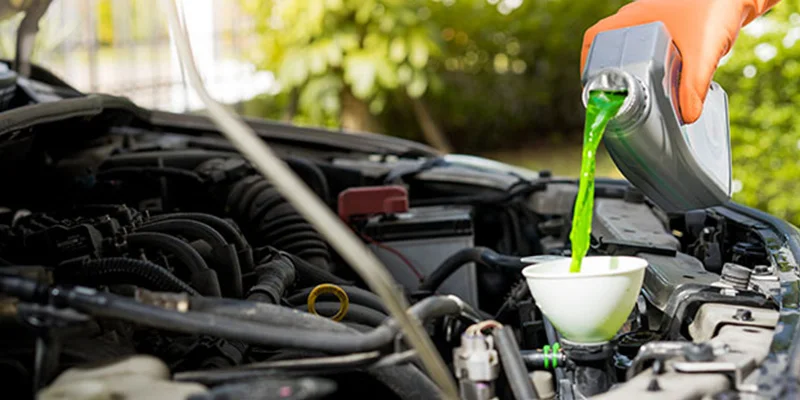
Both engine coolant and antifreeze work similarly, but there is a considerable difference between the two. While the antifreeze is more a concentrated liquid based on glycol, a coolant is the diluted mix of antifreeze. You can make an engine coolant from anti-freeze by mixing water in it.
Alternatively, you can buy a pre-mixed engine coolant, a ready water solution, and anti-freeze.
An anti-freeze is based on ethylene glycol that prevents liquid freezing in the radiator at sub-zero temperatures and lubricates the crucial engine parts to prevent inhibiting corrosion and excessive wear and tear.
The diluted anti-freeze, i.e., coolant, is crucial to combat the intense heat temperatures. Hence the engine coolant is a mix of water and anti-freeze with a ratio of 50:50.
How Do You Know If Your Car AC Needs Coolant?

What happens when you turn on the car’s air conditioning system on a hot summer day? The AC compressor leads to higher coolant transitions from gas to liquid to absorb the excessive heat and induce excellent air circulation in the vehicle.
This way, your car loses the coolant if there is any potential leak. Here are the 4 signs that your car AC needs coolant:
Ice Around the AC Compressor
Any ice formation around the compressor is an indication that there is a future leak from your AC compressor. It indicates moisture in the system, or maybe the coolant is leaking out from any opening.
Visible Leakage
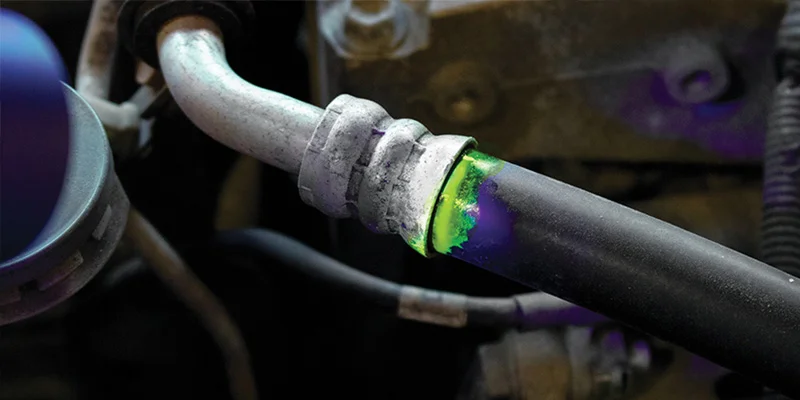
Any thin oily layer around the compressor indicates that the coolant is leaking from somewhere.
Absence of Clutch Click
The compressor clutch gets into gear when you turn on the Air conditioner. The AC compressor cools down the air by pressurizing the compressor clutch. Hence, if the clutch doesn’t engage once you turn on the AC or hear any clutch click, it indicates that your car needs freon.
Tepid Air
Once you turn on the AC, it is evident that the cool air is blown from the car’s AC vent. If this air remains at the toom temperature even after a few minutes, it indicates that your car needs a freon recharge.
Does the car Air Conditioner Need a Coolant?
A Car’s AC is a closed system that does not require any top-up for coolant. Most car owners believe that they should refill the refrigerant regularly. The fact is unless there is some problem with your car system, the coolant neither escape nor the vehicle’s system consumes it.
Moreover, most advanced car systems are devised to shut down on the dropping of coolant levels due to any leakage. Remember, running AC on the low coolant levels can damage the AC compressor. The compressor is responsible for pressurizing the refrigerants. In low refrigerant, there is a severe threat to the AC compressor.
Can the Coolant help with Vehicle Cooling?
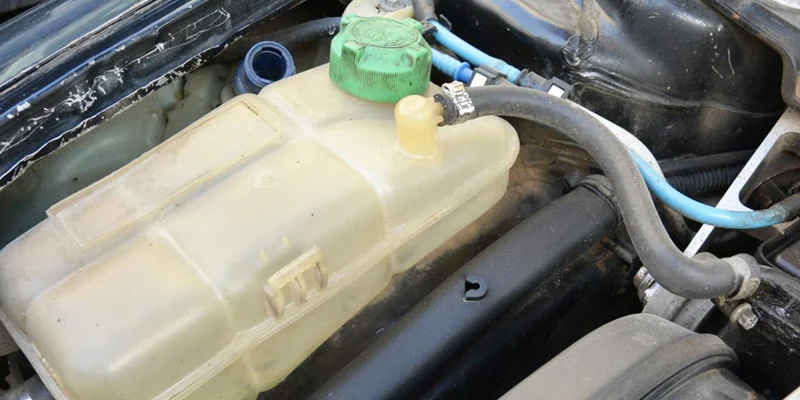
Any drop in your car’s coolant levels adversely impacts the engine’s and car’s efficiency. It also adversely affects the radiator and internal parts of the car’s AC. The inadequacy of fluid will overheat the car’s engine and automatically prevents shutting down the engine. Hence, you will not drive the car till the engine cools down. Any damage to the AC compressor due to inadequate coolant also impacts the vehicle cooling adversely.
Does Coolant Affect Air Conditioning?
Yes! As the coolant is responsible for the car’s airflow, humidity, and temperature, it can affect your car’s air conditioning.
Airflow
When the coolant level drops in your car, the hot air enters the AC unit and elevates the humidity and temperature levels within. It also obstructs the airflow leading to excessive dryness and discomfort to the passengers.
Humidity
If there is not enough coolant in the engine block to release the humidity, it leads to a dry effect in the atmosphere. It further results in dry mouth and dry skin of the passengers.
Temperature
As we know, the coolant is responsible for bringing down the temperature of an overheated engine. It simultaneously releases the hot air in the surroundings. Thus a coolant is responsible for inducing heat in the car’s interior.
Can Low Coolant Affect Car AC?
Yes! Collant is responsible for keeping the engine’s efficiency and the car compressor’s working. When the coolant levels become inadequate, it adversely affects the car’s AC performance.
Does the Age of Your Car Affect Air Conditioning?
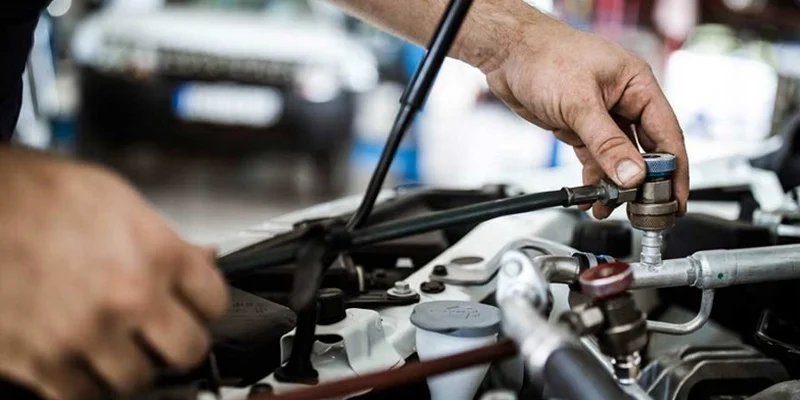
Yes. It does. The average age of a car air conditioner stands at 12 years. So, any car which is older than 12 years needs a replacement. It is possible to revamp your old car with modern parts such as an engine and air conditioner to improve the performance.
Will the coolant make my air Conditioner cooler?
A coolant is primarily responsible for upkeeping the engine and air conditioner efficiency. The adequate levels of coolant help in the proper working of the air conditioner.
What coolant is used in car air conditioners?
HFO-1234yf, R-12, and R-134 are some of the common freons that are commonly used in cars.
Why Is My Car Jerking When Slowing Down?

Due to an imbalance between fuel and air going into the engine. Any prospective problem with tires or brakes may also be why jerking in the car. Any impurities entering your engine due to improper functioning of filters also leads to jerking. A misaligned or damaged tire is another reason for jerks in your vehicle.
Does Antifreeze Help Air Conditioners?
Antifreeze helps protect the engine from overheating on the hottest days. The absence of antifreeze has a negative impact on the engine and the air conditioner’s compressor.
How to Boost Your Car AC?
Here are some recommended ways of boosting the car AC’s performance:
- Start the AC while driving
- Keep the AC condenser clean
- Inspect the refrigerant levels frequently
- Install an AC curtain
- Using window shades
Why is My Car AC not Cold enough?
The most common reason for AC not being cold enough is the leakage of freon or compressor issues. If you find the blowing air is cool but not cold, the possible reason can be a clogged filter or radiator trouble.
Frequently Asked Questions
Does Coolant run through the AC compressor?
Yes, coolant circulates through the AC compressor, and any prospective leak can damage the compressor leading to its complete shutdown.
Why do I lose coolant when AC is on?
When the AC is turned on, the coolant level decreases due to evaporation. It causes the engine to overheat and the cooling system to get flooded.
Is it safe to use water-based coolants?
Water-based coolants have been proven to be safer than oil-based coolants. However, they should only be used if the engine is maintained correctly.
Do I need to Change the Coolant Every Year?
No, you don’t need to replace the coolant every year. But, you must check the coolant level and top off the coolant if required.
Can I use Distilled Water instead of Coolant?
Distilled water is better than regular tap water. However, it won’t work as efficiently as coolant.
AC Use Coolants: Final Thoughts
Many things affect the performance of your car’s air conditioner. Some of them include the type of coolant, whether the coolant runs through the AC compressor, and how often it is changed. It is essential to keep these factors in mind before buying a new car air conditioner.

My Name is Christopher Angels, and I am a postgraduate in mechanical engineering. Cars have always excited me as a child, and soon I decided to dive into the world of cars by pursuing mechanical engineering. I also worked as a Mechanic for over 3 years to understand Cars’ anatomy and how each part contributes to its working.
My Name is Christopher Angels, and I am a postgraduate in mechanical engineering. Cars have always excited me as a child, and soon I decided to dive into the world of cars by pursuing mechanical engineering. I also worked as a Mechanic for over 3 years to understand Cars' anatomy and how each part contributes to its working.

